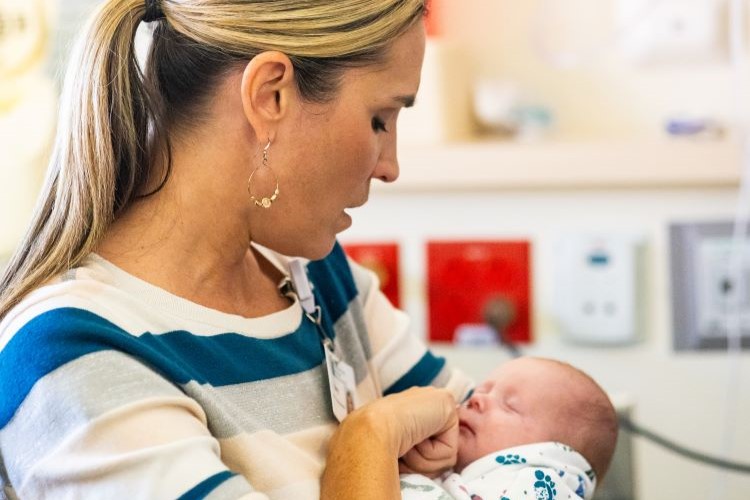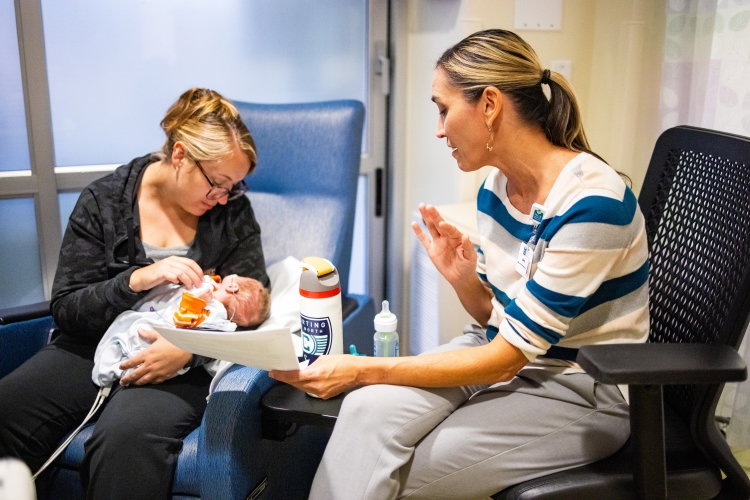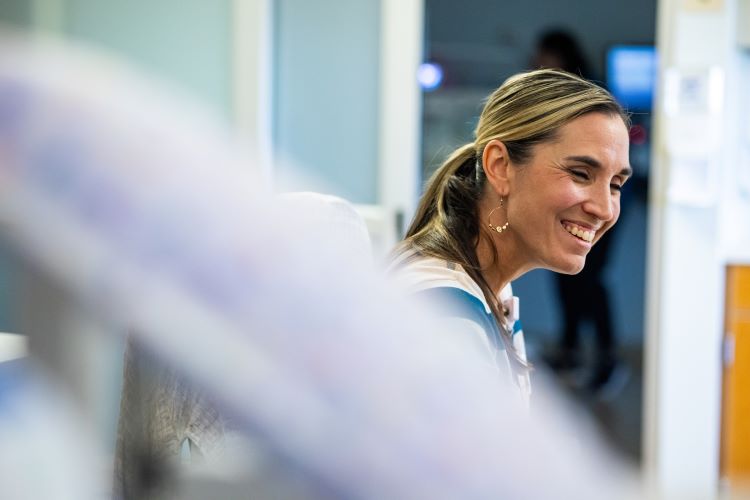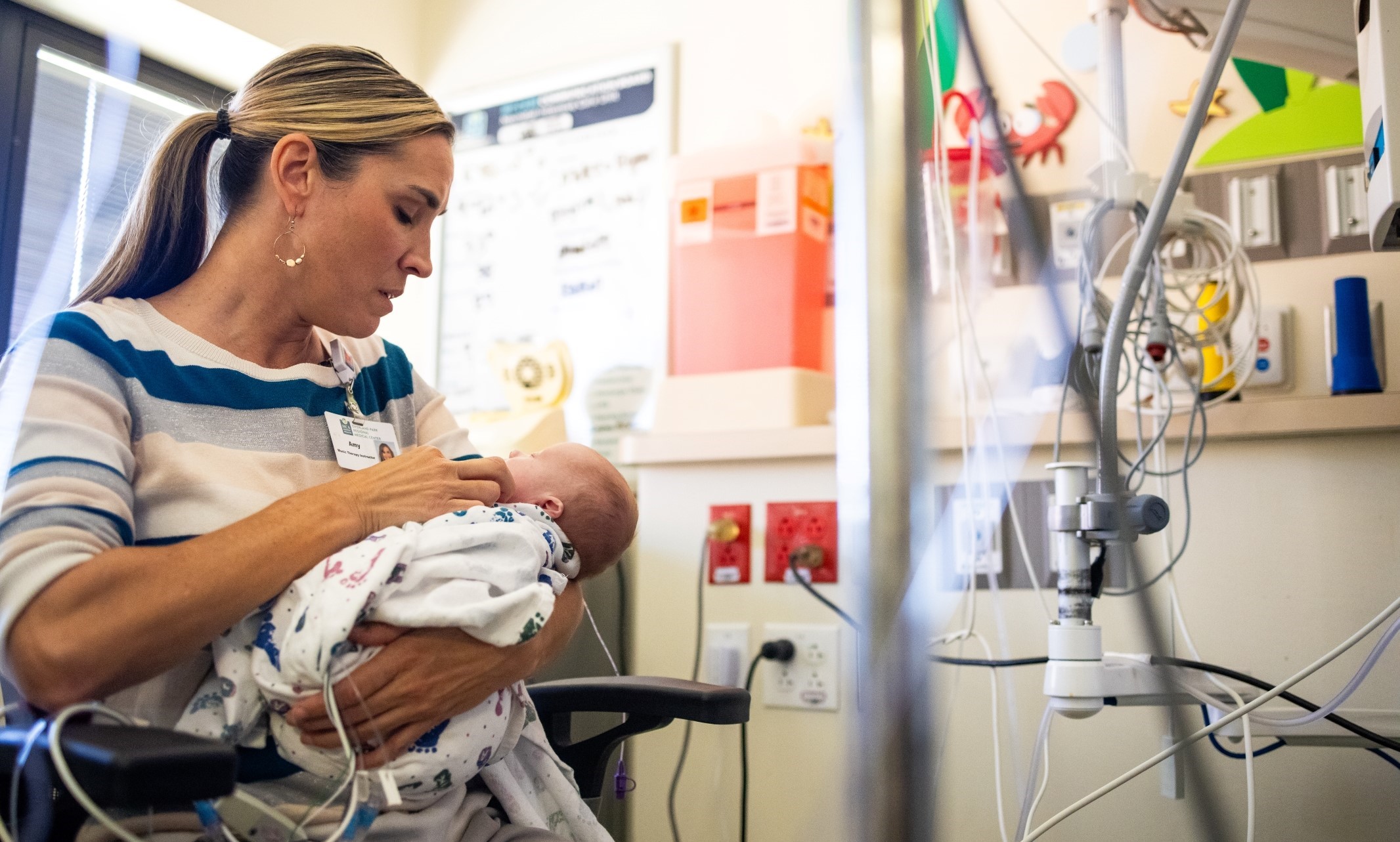When Amy Robertson, Ph.D., walks into the Neonatal Intensive Care Unit, or NICU, at a hospital, it’s with the goal to provide stress relief for premature babies and their parents. 她的主要工具是她的声音。
“Music therapy is a professional healthcare field; we use music to reach non-musical goals,” Robertson said. “If you think about physical therapy, occupational therapy or therapy with a counselor, those are all using different methods to reach a wellness goal. Music therapy is the same, we just use music as our medium.”
罗伯逊是密苏里大学堪萨斯城音乐学院的音乐治疗师和音乐治疗教授。 她的专长是治疗早产婴儿,这些婴儿通常需要留在新生儿重症监护病房。
“When I first started pursuing music therapy, I had a clinical working in a hospital, and part of that was working in the NICU,” Robertson said. “We started the music intervention, and the infant gave a huge smile, and I just fell in love with being in the NICU. I was amazed at the effect music can have on these infants who are so young.”
新生儿重症监护病房对早产儿来说可能是一个过度刺激的环境。 与医疗过程相关的声音、触摸和疼痛都会增加压力。 音乐疗法可以在不涉及任何止痛药或医疗程序的情况下缓解这种压力。

For her therapy work in the NICU, Robertson relies on 30 years of music therapy research and evidence to support the infants’ still-developing neurological systems. 有证据表明,非常具体的音乐协议可以对婴儿的发育产生积极的影响,而不会压倒他们。 对于这些年幼的婴儿来说,不带乐器亲自唱慢歌是最有效的。 随着他们年龄的增长和发育,更复杂的歌曲甚至小乐器,如沙球,可以用来达到各种发展目标。
“Premature infants are a totally different ballgame when it comes to auditory processing and we have to be aware of what they can take in,” Robertson said. “Lullaby music is slow and repetitive, so it’s very soothing to them. Think of ‘Twinkle, Twinkle Little Star’ and how it imitates the way we speak to infants.”
音乐治疗的积极结果包括增加氧气率,稳定呼吸率和心率,更快的体重增加和喂养,更低的疼痛评分和降低脑出血的风险。 接受音乐治疗的婴儿平均提前15天离开新生儿重症监护病房,这对他们年轻的生命来说是一个重要的时间。
罗伯逊和其他音乐治疗师目前使用的证据只适用于28周及以后出生的婴儿。 罗伯逊目前正在进行一项研究,将同样的原理应用于出生25至28周的极早产儿,希望能有类似的发现。 早期的结果是有希望的,特别是在减少脑出血和疼痛评分方面。

新生儿重症监护室音乐治疗的好处也延伸到父母身上。 罗伯逊说,当他们的婴儿接受治疗和医疗干预时,许多父母感到失控。 教他们音乐疗法给了他们一种与婴儿建立联系并照顾他们的工具,即使他们离开了新生儿重症监护病房。 对于一些家庭来说,这个工具可以在紧张的时候成为生命线。
“A couple of years ago, I had a referral for an extremely premature infant, born at 25 gestational weeks weighing less than a pound,” Robertson said. “During a conversation I had with the dad, he told me that the infant’s mom was being treated for cancer, so that was one of the reasons the infant was born so early. Giving him those music therapy tools was a really important way for him to bond and feel like a ‘normal’ parent, especially because Mom couldn’t be there at first. 一旦妈妈能够开始探望,我们最后为婴儿写了一首歌,每当他们来新生儿重症监护室时都会唱。 Mom loved it, because those were moments she could have with her infant when she wasn’t able to have as much time as other moms in the NICU, given everything she was facing. Even after they were discharged and back home as a family, they still sang the song to their infant every day.”

Stephanie schatter, PT, DPT,是Overland Park地区医疗中心NICU的物理治疗师。 她的部分工作是帮助确定哪些婴儿会从音乐治疗中受益,她和罗伯逊一起工作,与这些婴儿和家庭建立联系。 She sees firsthand how important Robertson’s research is, as medical staff are increasingly caring for infants born at earlier gestational ages.
“As medicine improves, we’re seeing more of these infants come into our care,” Schlatter said. “We’re having to ask ourselves how we can best and most appropriately help these infants with music. Amy does a great job of stepping in to help with that.”

